The highly promising New Zealand conductor Gemma New has signed on for another term with Canada’s Hamilton Philharmonic taking her to 2024.
Gemma is also Principal Guest Conductor of the Dallas Symphony Orchestra, going places.
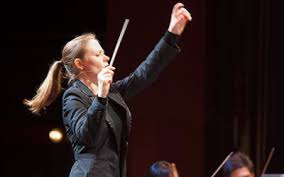
The highly promising New Zealand conductor Gemma New has signed on for another term with Canada’s Hamilton Philharmonic taking her to 2024.
Gemma is also Principal Guest Conductor of the Dallas Symphony Orchestra, going places.

Who knew?

VAN magazine has published an exposé of some all too familiar practices by so-called competitions and their associated labels.
Example:
The New York-based coloratura soprano Sarah Heilman applied this year. “This competition seemed like one where I may have been able to be a contender, even though I am still in the early process of ‘making it’ as a professional,” she said. She paid her $95 entry fee, sent in her videos, and won a First Grand Award in the Virtuoso category. But she was unable to attend the winners’ concert in the Musikverein due to COVID-19 travel restrictions, and was therefore told that she would forfeit her $1,200 prize. In the end, all Heilman got was a certificate sent via email.
Read on here.

From the Teatro Real, Madrid:
We are very happy to announce that we will have tonight the premiere of a new production of Rusalka.
Unfortunately, the tenor Eric Cutler has broken his Achilles tendon during a rehearsal the day before the General Rehearsal.
Although there is a second cast and also a cover, Christof Loy and Cutler himself have decided to go on, after almost two months of rehearsals together and his debut on this role. So, he will perform tonight with crutches.
Paradoxically, this production was conceived with the character of Rusalka as a lame ballerina.
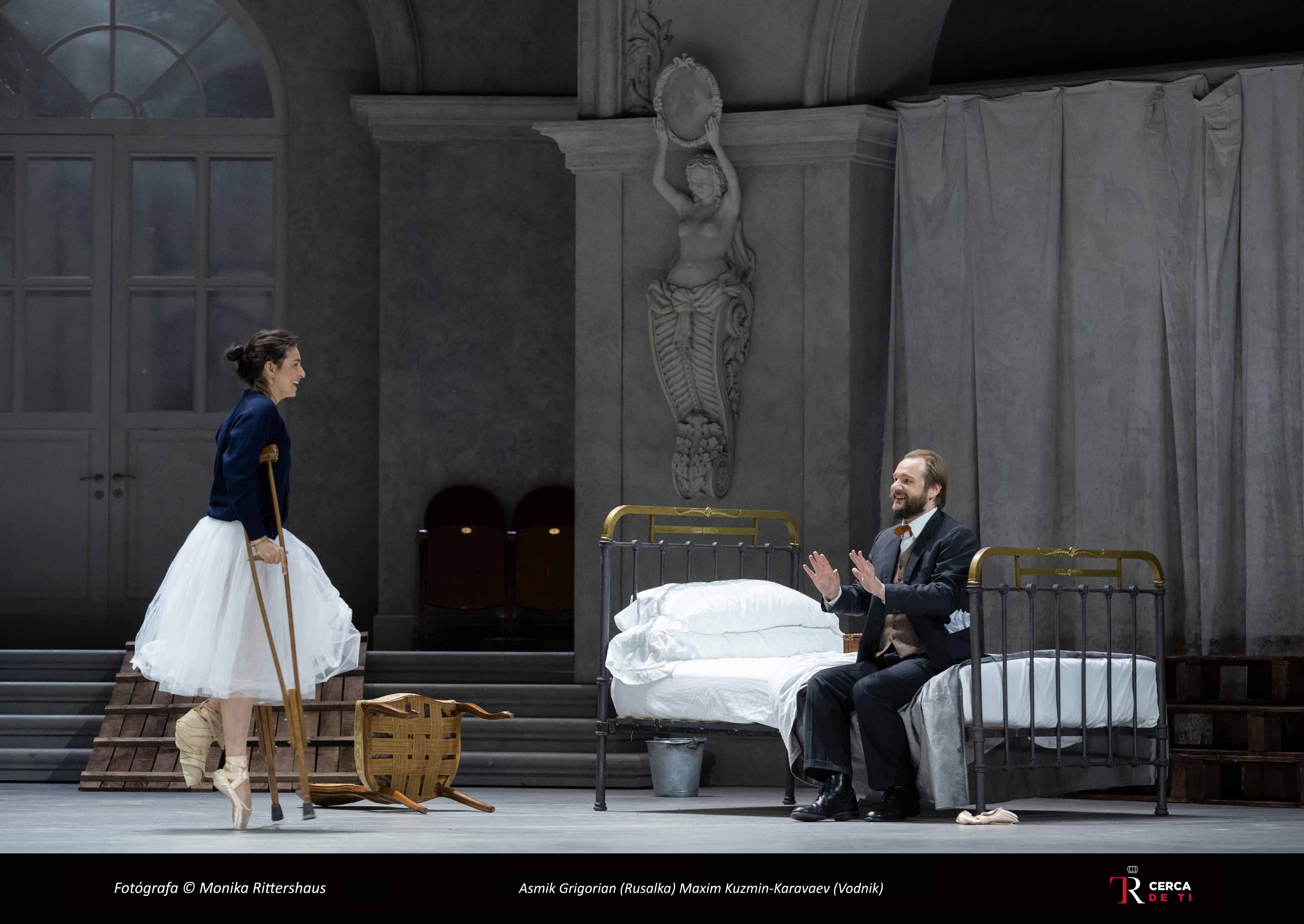
In this week’s Spectator, Telegraph critic Ivan Hewitt speaks up for big male beasts, ‘In defence of the tyrannical male maestro’. Sample quote:
One must salute the talent, energy and determination of these women, who’ve succeeded in what is still a male-dominated world. But I’m sceptical of the idea that the arrival of women will lead to a total transformation of the orchestra-conductor relationship. Audience expectations haven’t changed; they still want conductors to put their personal stamp on performances, and that can’t happen entirely through negotiation. Elias Canetti’s observations about the absolute power of a conductor in the moment of performance still hold true, even if it’s a woman on the podium. Because of that, the job will attract women who enjoy the exercise of that power, just as it attracts men who enjoy it. So sparks are bound to fly in rehearsal, as they always have done. To pretend that the banishing of the male maestro will turn orchestral rehearsals into bowers of sweetness and light, presided over by women conductors who are never competitive or domineering and are always models of quiet-voiced tactfulness, is just naive.
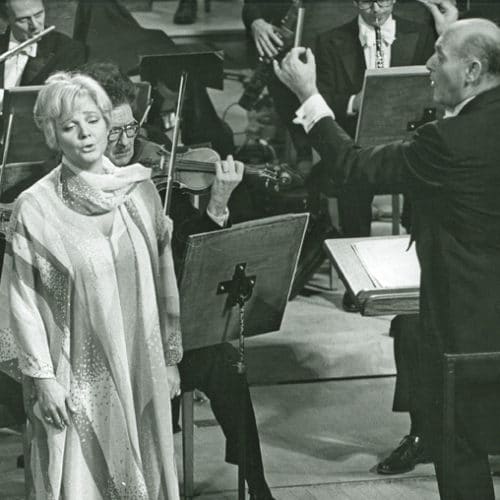
The article swiftly provoked a hysterical backlash on torpid ClassicFM, under the headline ‘A prominent critic has stood up for the fragile ‘tyrannical male maestro’. Here’s why he’s missing the point’.
Read it here.
Oh, dear.
On the eve of the composer rape trial, BR reports:
Der Strafrechtsexperte Frank Saliger sollte von der Musikhochschule mit der Beobachtung des Verfahrens gegen Hans-Jürgen von Bose betraut werden. Nachdem jedoch bekannt wurde, dass Saliger im Dezember 2019 im Zusammenhang mit einem Verfahren wegen möglicher illegaler Parteispenden für die AfD gearbeitet hatte, löste die Uni den Vertrag “mit sofortiger Wirkung einvernehmlich auf”, wie es in einer kurzfristig nachgeschobenen Mitteilung hieß: “Mit diesem Schritt setzen beide Parteien ein klares Signal gegen erhobene Vorwürfe eines vermeintlichen Zusammenhangs der Organisation der Prozessbeobachtung mit der AfD.”
Meaning:
The criminal law expert Frank Saliger was to be tasked by the Music Academy with monitoring the proceedings against Hans-Jürgen von Bose. However, once it became known that Saliger had worked for the AfD [far-right Alternativ für Deutschland] in December 2019 in connection with a case of possible illegal party donations, the Academy dissolved the contract ‘with immediate effect by mutual consent’.

The prominent pianist and educator Luiz Henrique Senise has died in Rio de Janeiro of Covid-19. He was a professor at the federal university, which issued this statement:
The direction of the UFRJ School of Music communicates with immense regret the death of its professor Luiz Henrique Senise, which occurred today. During his training, he was a disciple of Elzira Amábile, perfected with Jacques Klein, Arnaldo Estrella and Magda Tagliaferro. In Europe he studied under the supervision of Bruno Seidlhofer in Vienna, Nikita Magaloff in Geneva and with Jan Ekier, Pierre Sancan and Eliane Richepin in France.
Senise has been a piano teacher at the Keyboard Department since 1994, responsible for the solid training of countless musicians. The excellence of his teachings is attested by hundreds of awards won by his students.
With impeccable technique and all the qualities of a splendid musician, pedagogue and artist, he dedicated his life to students and redimensioned the teaching of piano at UFRJ
Rio de Janeiro, November 11, 2020
Ronal Silveira
Director of the UFRJ School of Music
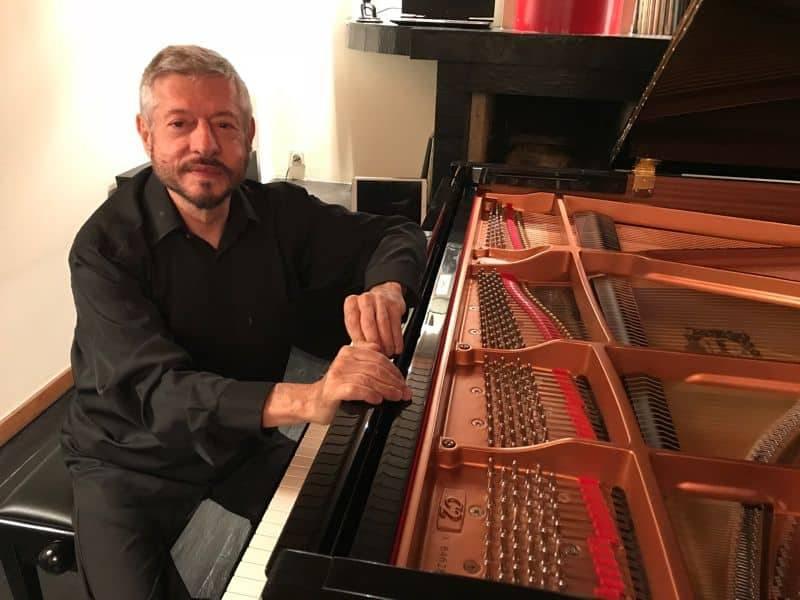
The phenomenal chazan Moshe Taube whose life was saved as a child by Oskar Schindler has died in Pittsburgh, aged 93.
His mother and sister were murdered by the Nazis.
Watch from 2:06:00. ‘At that time, killings were an everyday occurrence…’

The Süddeutsche Zeitung has run an extensive prelude to the rape trial of composer Hans-Jürgen von Bose which opens tomorrow. According to the paper, sexual exploitation was rife at the city’s music academy while Siegried Mauser was in charge.
There were reports in the Mauser trials about the climate that prevailed at the Musikhochschule for a long time. And it is still easy today to find contemporary witnesses reporting on it. For example, contests are said to have been the order of the day, as to which professor would be the first to “pop” a new student. As for Hans-Jürgen von Bose, there are accounts of how openly he is supposed to have dealt with issues such as bisexuality or affairs. In an interview with the news magazine ‘Spiegel’ (May 2018), Bose said he was constantly looking for a kick – whether driving a car or in bed . . .
“The accusations against Bose are by Helena P. (name changed), the sister of a student who studied with Bose. She was 22, he was 53. They are said to have fallen in love and had a relationship from November 2006 to the summer of 2007. Hans-Jürgen von Bose is said to have demanded that she make a promise to experiment sexually and to have expected her to visit a swingers club, for example. The prosecution accuses Bose of having created a climate of fear and hopelessness in the relationship. A gun is said to have been lying next to the bed, Bose had become increasingly uncontrolled and aggressive, threatening to ruin her career and that of her brother if she did not obey. Drugs and medications were lying around in the house.
“The public prosecutor’s office has filed three counts of rape committed by Bose in the relationship. It is said that litigation has been unsuccessful for days because of the unsuccessful acquiring of sexual partners or the like. Helena P. was allegedly not allowed to leave the bedroom, was subjected to sleep deprivation, was given drugs by Bose, and was not allowed to eat or drink. He is accused of abusing her weakened condition and to have raped her in her sleep . . . ”

A tweet from Steven Isserlis reminded us of Isaac Stern’s famous aphorism when he became the first US violinist to visit the Soviet Union and David Oistrakh was allowed to play in the US.
Stern, who was born in Ukraine with family in Odessa, said that cultural diplomacy was a simple matter: ‘They send us their Jews from Odessa, and we send them our Jews from Odessa.’
Today, Steven tweets from Madrid:
Amazing! My Odessa-born father was a fine amateur violinist, with a certain way of holding the instrument. In 1987 in Odessa I saw a violinist holding it just the same way. And now in Madrid, I saw a violinist with a familiar stance. ‘Where are you from?’ I asked. ‘Near Odessa’.
— Steven Isserlis (@StevenIsserlis) November 12, 2020

Linda Marks, the former partner at HarrisonParrott who brought to the podium more flapping Finns that you’ll find in a fish pond, is about to launch her own Linda Marks classical agency.
So far she has four conductors:
David Zinman
Robert Spano
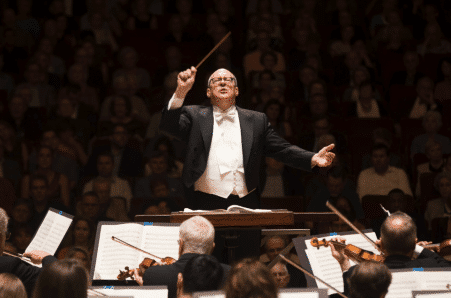
Rumon Gamba
and the young Henry Kennedy.
Here’s the website.
Maestro’s know she’s among the best in the biz.
The composer Michael Robinson has a striking revelation:
Watching the exhilarating documentary, The Making of West Side Story, featuring the composer himself rehearsing and recording this penultimate twentieth century masterpiece, I am reminded of some startling information the legendary alto saxophonist, Lee Konitz, once casually shared with me while conversing during one of the many nature walks we took together. Somehow the subject of Leonard Bernstein came up, and Lee related how the two had lived in the same Manhattan building for a period of time, that Bernstein was an excellent pianist, and … Leonard told him that the song “Cool” from West Side story was directly inspired by his music!
Sure enough, if one examines the song, the inverted cross-pentangle, Kandinsky-like melodic shapes and syncopations of Lee’s inspired and swinging improvisations navigating harmonic contours are apparent, especially in the instrumental elaborations of the score, which are, arguably, the most musically thrilling portions of West Side Story. But even the monumental opening moments of Bernstein’s masterwork – almost as famous as the opening of Beethoven’s Fifth Symphony – are infused with jazz, but not the jazz of Charlie Parker or Dave Brubeck. Rather, the jazz of Lee Konitz, who was inspired by Lennie Tristano, Artie Shaw, Benny Goodman and Lester Young. This grandly complex musical influence suffuses the atmospheric crosscurrents of West Side Story….
Read on here.
